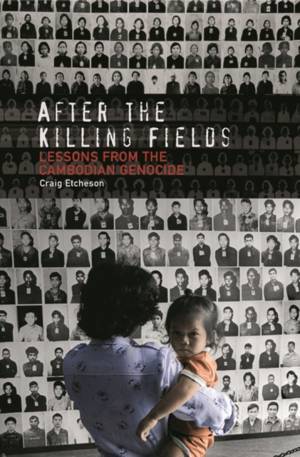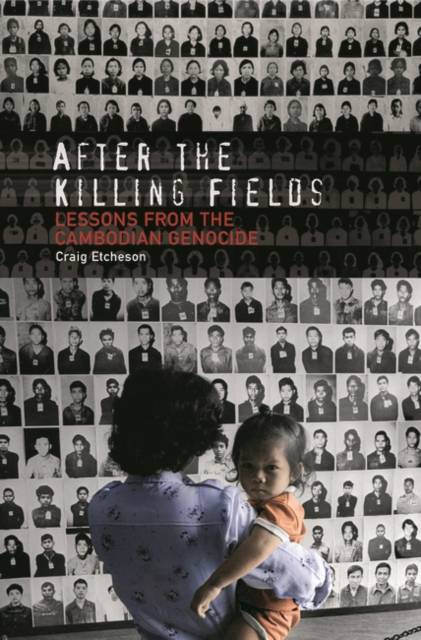
- Afhalen na 1 uur in een winkel met voorraad
- Gratis thuislevering in België vanaf € 30
- Ruim aanbod met 7 miljoen producten
- Afhalen na 1 uur in een winkel met voorraad
- Gratis thuislevering in België vanaf € 30
- Ruim aanbod met 7 miljoen producten
Omschrijving
For 25 years, Cambodia's Khmer Rouge have avoided responsibility for their crimes against humanity. For 30 long years, from the late 1960s to the late 1990s, the Cambodian people suffered from a war that has no name. Arguing that this series of hostilities, which included both civil and external war, amounted to one long conflict--The Thirty Years War--Craig Etcheson demonstrates that there was one constant, churning presence that drove that conflict: the Khmer Rouge. New findings demonstrate that the death toll was approximately 2.2 million people--about half a million more than commonly believed. Detailing the struggle of coming to terms with what happened in Cambodia, Etcheson concludes that real justice is not merely elusive but may, in fact, be impossible for crimes on the scale of genocide.
This book details the work of a unique partnership, Yale University's Cambodian Genocide Program, which laid the evidentiary basis for the forthcoming Khmer Rouge tribunal and also played a key role in the international advocacy necessary for the tribunal's creation. It presents the information collected through the Mass Grave Mapping Project of the Documentation Center of Cambodia and reveals that the pattern of killing was relatively uniform throughout the country. Despite regular denial of knowledge of the mass killing among the surviving leadership of the Khmer Rouge, Etcheson demonstrates that they were not only aware of it, but that they personally managed and directed the killing.Specificaties
Betrokkenen
- Auteur(s):
- Uitgeverij:
Inhoud
- Aantal bladzijden:
- 272
- Taal:
- Engels
Eigenschappen
- Productcode (EAN):
- 9780275985134
- Verschijningsdatum:
- 1/04/2005
- Uitvoering:
- Hardcover
- Formaat:
- Genaaid
- Afmetingen:
- 169 mm x 243 mm
- Gewicht:
- 553 g

Alleen bij Standaard Boekhandel
Beoordelingen
We publiceren alleen reviews die voldoen aan de voorwaarden voor reviews. Bekijk onze voorwaarden voor reviews.











